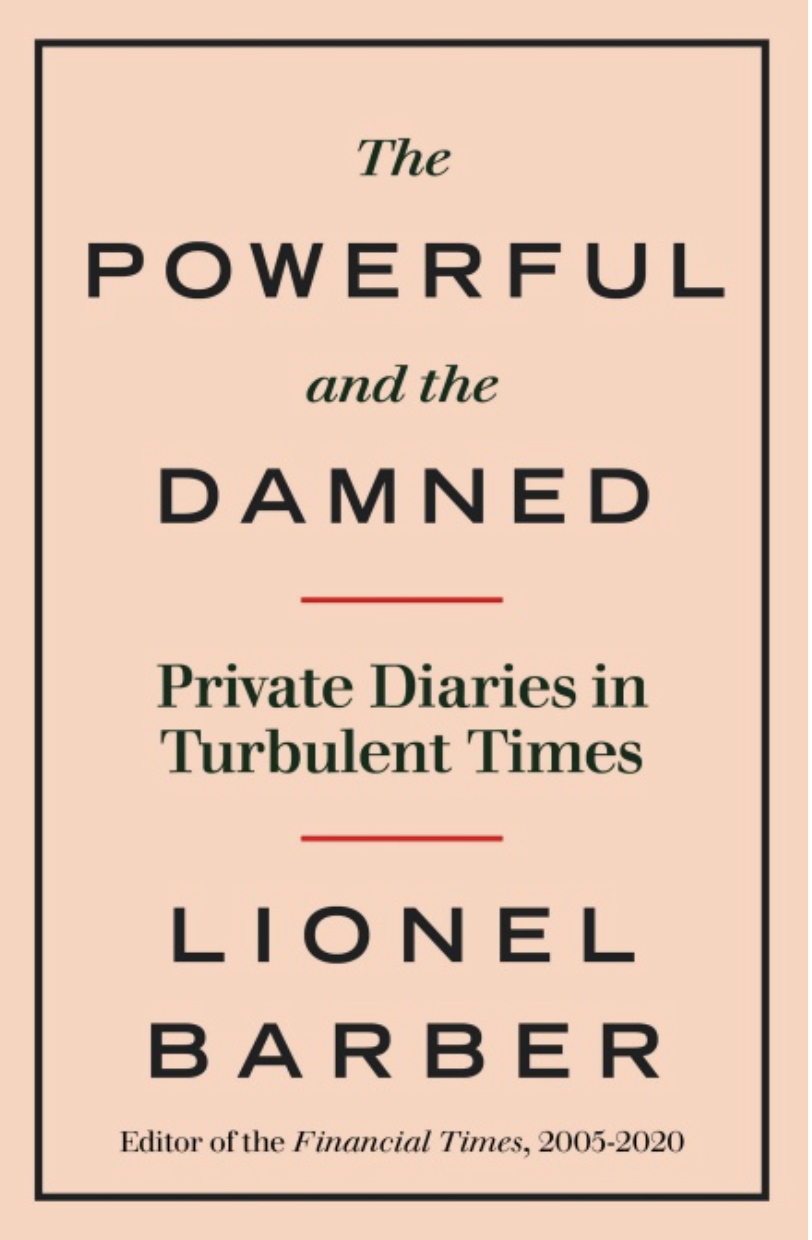
Holding Power to Account


Barber’s diaries offer close up view of challenges of editing and of leadership in an age of upheaval, an engaging chronicle of the 14 years at the FT’s helm.
The real scoop isn’t on the front page – Lionel Barber as FT editor for the tech boom, who whispered or yelled what into the editor’s ear, the global financial crisis, the rise of China, Brazil, all back-dropped by the geopolitical and technological rivalry between the US and China and mainstream media’s fight for survival in the age of fake news, privileged interlocutor to people in power around the world, each offering unique right into high-level decision-making and political calculation, often in moments of crisis.
Barber reveals the private meetings and exchanges with political leaders on the eve of referendums, the conversations with billionaire bankers facing economic meltdown, exchanges with Silicon Valley tech gurus and pleas from foreign emissaries desperate for inside knowledge, all against the backup of a wildly shifting media landscape.
The result is fascinating as the portrait of power in our modern age, who has it, what it takes and what drives the men and women with the world at their foot.
Close encounters with Trump, Cameron, Blair, Putin, Merkel and Mohammed Bin Salman and several more, a rare portrait of the people who continue to shape the world and who quite literally make the news.
History was being made, with the post-war international order first eroded and then actively undermined by its own main creator, America, and with technological disruption swirling all around.
That story is above all one of the broadening and strengthening of the FT as the media business passed through its own turbulent times. Newspapers were being toppled by internet, while the FT needed to pick itself up after a sticky, even stagnant, patch in the early 2000s.
Barber grasped the opportunity that digitalisation provided to move from a print-first to a digital first service, enabling his commercial colleagues to re-engineer the business away from one relying on advertising to one driven by subscription.
He was the first FT editor to have published memoirs featuring visits to places such as Rwanda, Myanmar, Japan and Brazil and encountered people as diverse as Philip Green, Masayoshi Son and Huawei’s Ren Zhengfei.
Barber inherited the messy and costly settlement in 2005-06 of legal battle with the financier Terry Smith, and passes through the dramatic sale of the paper in 2015 by Pearson to Japan’s Nikkei, with the adjustments but also new investment that he change of ownership brought, including a series of magnificent achievements of investigative journalism, notably the exposure of the “Presidents CluB” charity dinner in London, where sexual harassment was rife, and, most recently, of the vast accounting fraud at the German payments company Wirecard.
Barber clearly understood the transistion between legal mess to investigative success an important principle behind the journalistic vocation of holding power to account.
A publication first needs to build and maintain a reputation for quality, reliability, and independence along with a sound business model, as it takes risks with its journalists’ time and the paper’s reputation.
The Powerful and the Damned: Private Diaries in Turbulent Times by Lionel Barber, WH Allen £25, 480 pages.
